Our work
EDRi is the biggest European network defending rights and freedoms online. We work to to challenge private and state actors who abuse their power to control or manipulate the public. We do so by advocating for robust and enforced laws, informing and mobilising people, promoting a healthy and accountable technology market, and building a movement of organisations and individuals committed to digital rights and freedoms in a connected world.
Filter resources
-
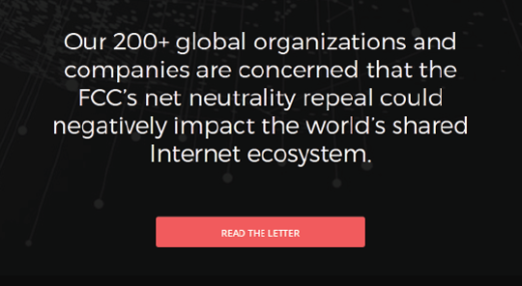
Letter to the FCC: The world is for net neutrality
Today, 26 September 2017, European Digital Rights (EDRi) and over 200 other civil society organisations and businesses joined forces to send a letter to the head of the US Federal Communications Commission (FCC) with a clear message: the world is for net neutrality. In the letter, we express concerns about the negative impact the rollback […]
Read more
-

Leaked document: Does the EU Commission really plan to tackle illegal content online?
On 14 September, Politico published a leaked draft of the European Commission’s Communication “Tackling Illegal Content Online”. The Communication contains “guidelines” to tackle illegal content, while remaining coy in key areas. It is expected to be officially published on 28 September.
Read more
-

Did the EU Commission hide a study that did not suit their agenda?
In 2013, the European Commission announced a launch of a study on copyright – and never published its results. Julia Reda, a Member of the European Parliament (MEP), tabled a freedom of information request on this issue and was eventually granted access to the study.
Read more
-
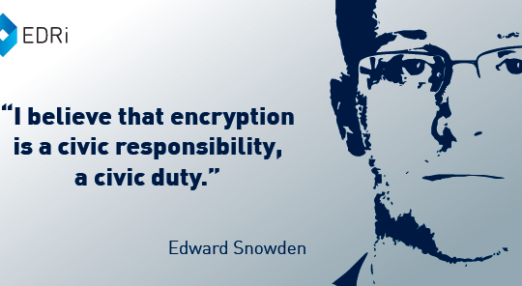
Position Paper: Encryption workarounds and human rights
On 12 September, EDRi published the position paper “Encryption Workarounds: a digital rights perspective”. It was published in response to the European Commission’s expert consultation exercise around the Encryption Workarounds paper by Orin Kerr and Bruce Schneier.
Read more
-

Should video-sharing platforms be part of the AVMSD?
The Audiovisual Media Services Directive (AVMSD) is currently being reformed. After going through several legislative stages, the AVMSD is now being negotiated in trilogues, that is, informal, secret negotiations between the European Parliament (representing citizens) and the Council (representing EU Member States), facilitated by the European Commission (representing EU interests). As part of the negotiations, […]
Read more
-

Dutch digital investigation: Pushing the boundaries of legality
The Dutch court is currently considering the case against Naoufal F, in which the police made use of several advanced digital investigation methods that challenge the boundaries of the law. A key issue in the case is the way in which the police gained access to and analysed the secure communication of suspects. Inez Weski, […]
Read more
-

Cross-border access to data has to respect human rights principles
The Council of Europe started preparing an additional protocol to the Cybercrime Convention – a new tool for law enforcement authorities (LEAs) to have access to data in the context of criminal investigations. Ahead of the first meeting of the Drafting Group, EDRi coordinated a civil society submission, signed by 14 organisations from around the […]
Read more
-

Secret documents reveal: BND attacked Tor and advises not to use it
The German spy agency BND developed a system to monitor the anonymity network Tor and warned federal agencies that its anonymity is “ineffective”. This is what emerges from a series of secret documents published by the German Netzpolitik blog. The spies handed a prototype of this technology over to the US National Security Agency (NSA), […]
Read more
-

Human Rights Court sets limits on right to monitor employees
On 5 September 2017, the Grand Chamber of the European Court for Human Rights (ECtHR) ruled on the Bărbulescu v. Romania case. It found that there was a breach of the right to family life and correspondence (Article 8 of the European Convention on Human Rights), as claimed by Mr Bărbulescu. Mr Bărbulescu was fired […]
Read more
-
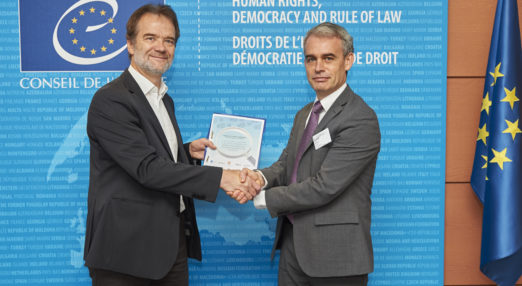
Cross-border access to data: EDRi delivers international NGO position to Council of Europe
Today, 18 September 2017, a global coalition of civil society organisations, led by European Digital Rights (EDRi), submitted to the Council of Europe its comments on how to protect human rights when developing new rules on cross-border access to electronic evidence (“e-evidence”). The Council of Europe is currently preparing an additional protocol to the Cybercrime […]
Read more
-
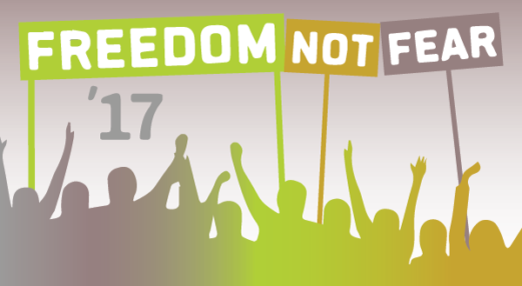
FnF 2017: Register for travel support until 22 September!
Freedom not Fear, an annual barcamp organised by EDRi member Digitalcourage for European digital rights activists, takes place in Brussels the weekend of 6-9 October 2017. The event takes place at Mundo B in Brussels and is open for everyone – there are no registrations. Participants that extend their stay to visit the European Parliament […]
Read more
-
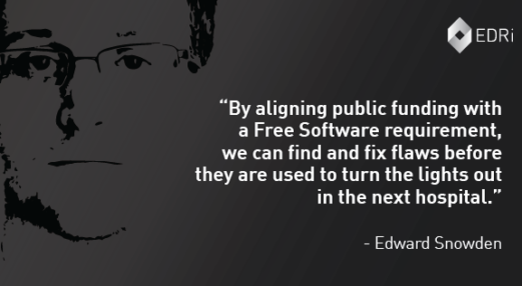
Public Money? Public Code!
31 organisations ask to improve public procurement of software Today, on 13 September 2017, 31 organisations are publishing an open letter. The letter calls for lawmakers to advance legislation requiring publicly financed software that has been developed for the public sector be made available under a Free and Open Source Software licence. Digital services offered […]
Read more
